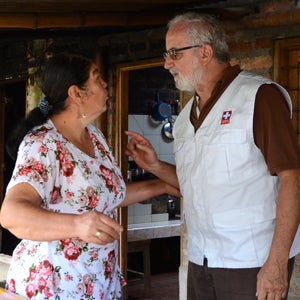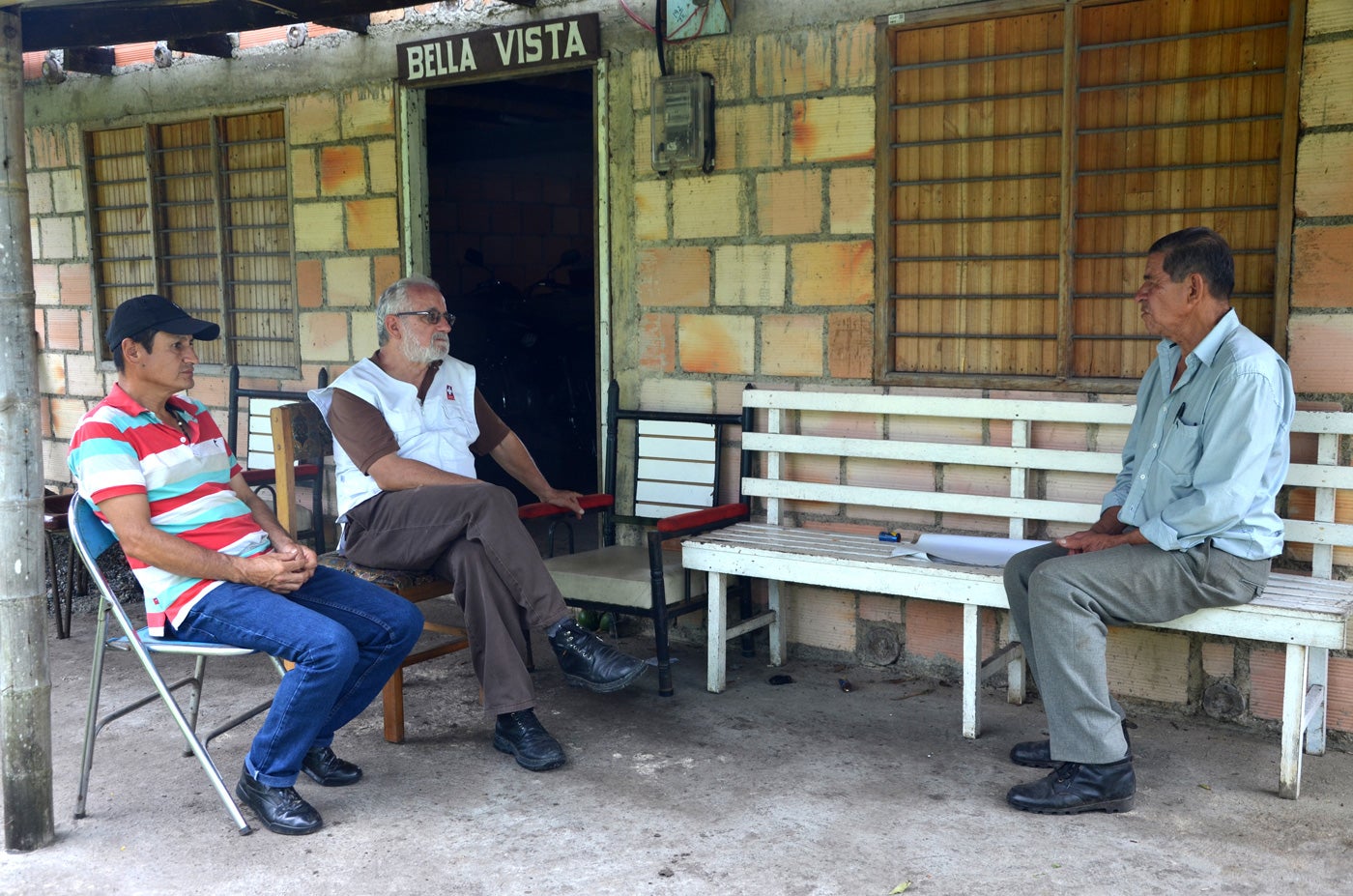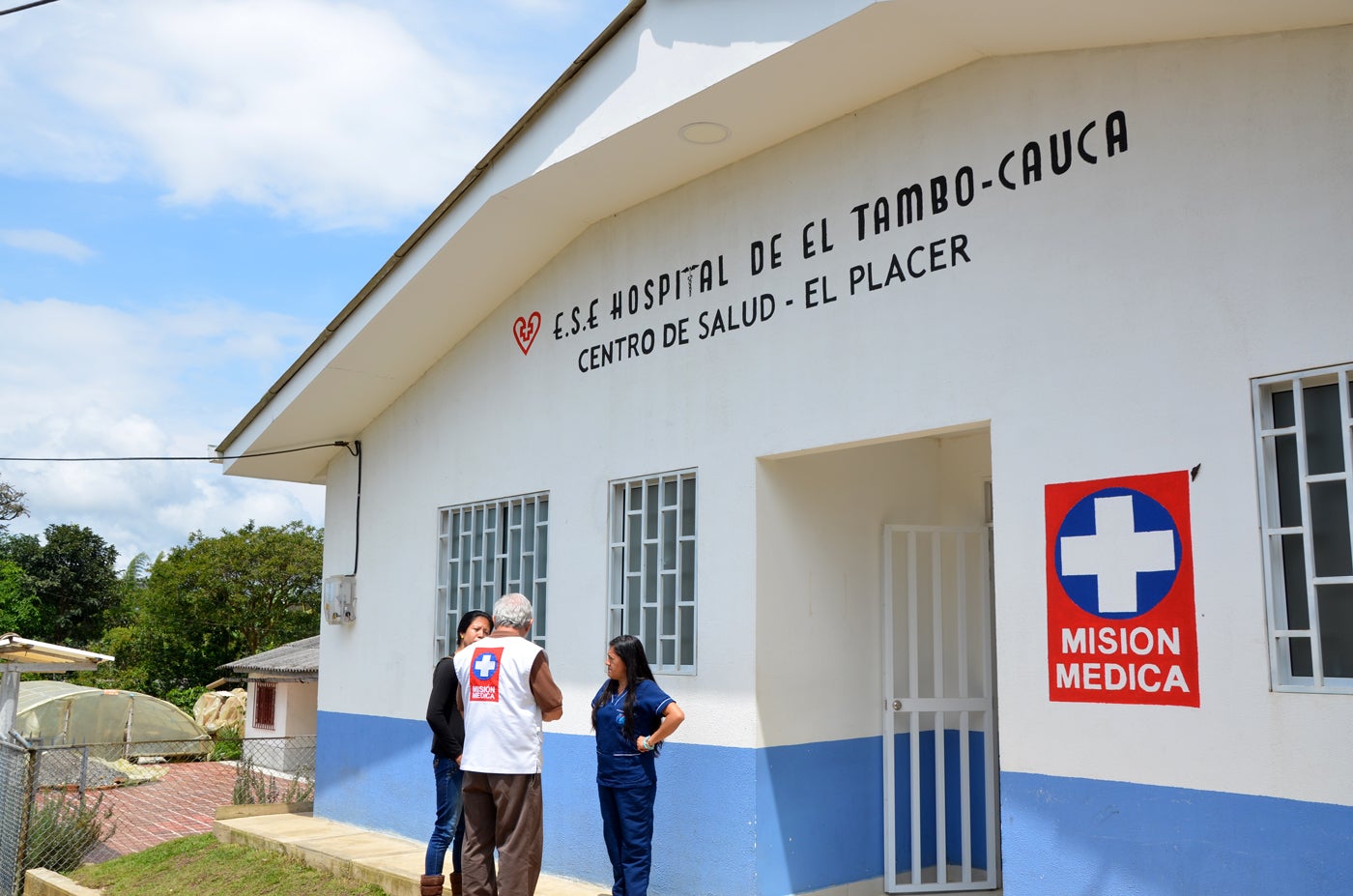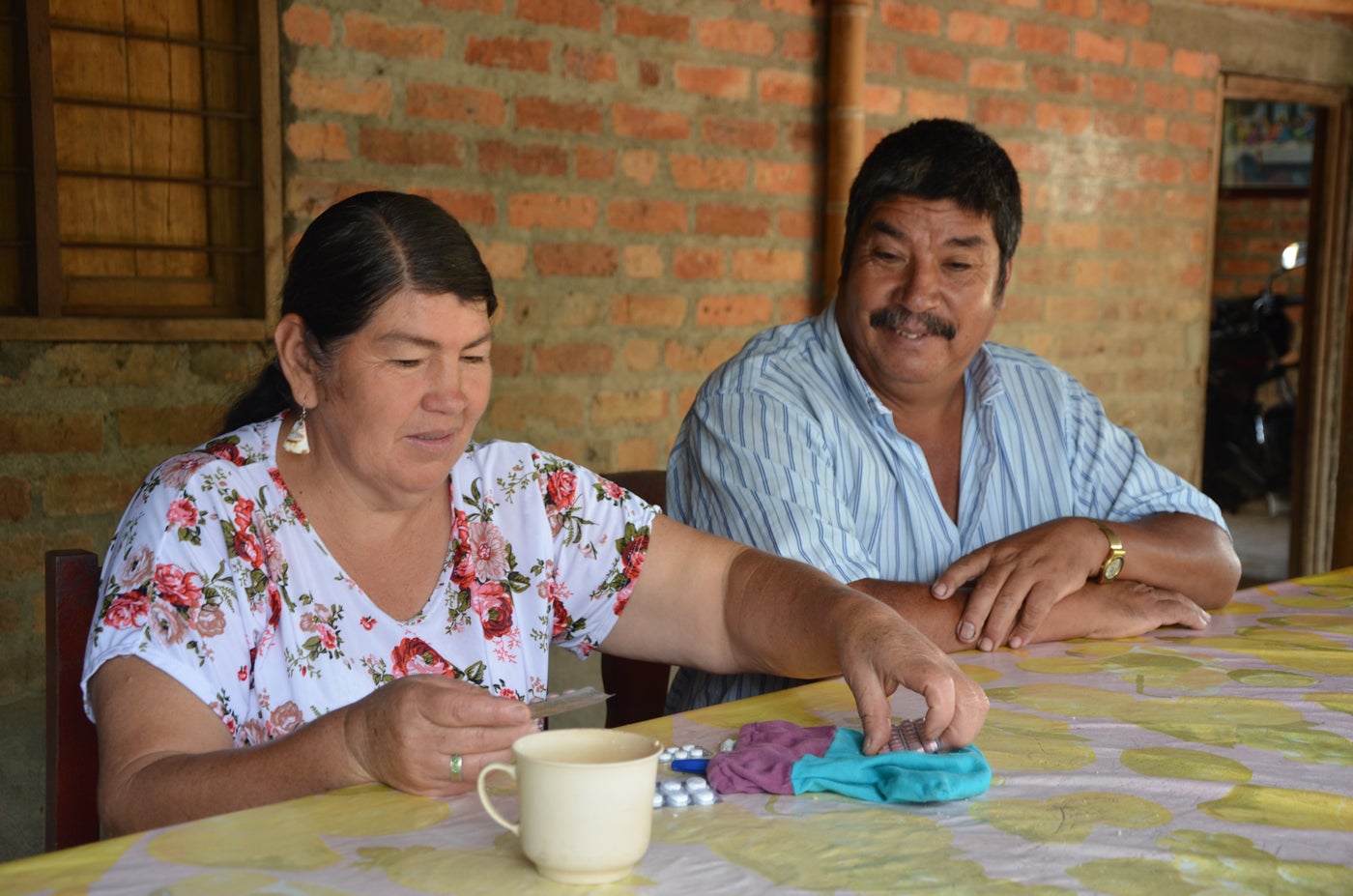
Fear and shame were the overriding emotions experienced by Jesus Gomez and Zeneida Rojas every time they left their homes. "When I experienced an episode, I was too afraid to visit town in case I bumped into anyone I knew," recalled Jesus. Zeneida had very similar experiences. "I just wanted to stay locked up at home," she added. "Not anymore though."
El Tambo, Cauca, Colombia, 30 May 2018 (PAHO)- Fear and shame were the overriding emotions experienced by Jesus Gomez and Zeneida Rojas every time they left their homes. "When I experienced an episode, I was too afraid to visit town in case I bumped into anyone I knew," recalled Jesus. Zeneida had very similar experiences. "I just wanted to stay locked up at home," she added. "Not anymore though."
Both patients live with severe mental illness and since 2013 have been receiving care in their communities. Once a month, mental health professionals visit their homes in the municipality of El Tambo, Department of Cauca, in Colombia, to provide them with a treatment plan that meets their very specific needs. "Now I have no problem letting myself be seen," said Jesus.

Jesus and Zeneida are not the only ones with mental illness. In the Americas region, one in four people will suffer from a mental or neurological disorder in their lifetime. But according to estimates from the Pan American Health Organization (PAHO), 73.5% of adults with severe and moderate affective disorders, anxiety disorders and substance use disorders in the region do not receive adequate treatment.
In this case, the situation has improved thanks to El Tambo Hospital's ‘Serving serious mental illness program'. As part of this program, more than 260 patients receive treatment, including home follow-up and psychosocial care, administered by one of six municipal health centers.

According to Dr. Martín Vergara, Project Director, the initiative came about in order to provide rural health services to those facing stigma due to complex mental illness, but who had been unable to access services due to their location.
The program is centered on the community-based care and rehabilitation (CBR) model, for patients with chronic mental illness who require outpatient treatment, that takes into account the principles of community-based care promoted by PAHO: decentralized, participatory, integral, continuing and preventive.
"We started small: identifying patients and treating them in a clinical setting," explained Vergara. Then, we started making diagnoses in the field, carrying out clinical evaluation and developing a pharmacological treatment plan when necessary. This enabled us to gain a much better idea of the particular needs and situation of a patient and the difficulties they face.
"When the doctors came to see me, I was in a very bad state, but thanks to the treatment plan they have provided, I have made significant improvements," said Jesus.
In the community, with the community
The involvement of nurses has been key to the success of the project. "We are in the field all the time so we know the families and we know the people with mental health problems," said Alba Luz Rosas, nursing assistant at the El Placer Health Center.
"Once we have identified the people that require treatment, we can involve them in the project and follow-up on their cases. The program has really changed the lives of many patients and their families" she added.
"When she experiences an episode, it is difficult for everyone," said Dagoberto Benavides, Zeneida's husband, "But with the right medication, everyone can sleep peacefully."

For Eduardo Villa, Manager of the El Tambo Hospital, the greatest impact seen by the program is the social inclusion of those affected by mental illness. "It is wonderful to see how the patients have changed, to see them become active in their communities, productive members of society, and able to lead more dignified lives," he added.
Villa believes that the program should now be integrated into public policy so that it can be rolled out into other areas of the country. "The program has been really successful in promoting human dignity. We now know that the strategies work and that they cost much less than we thought," he said.
The care provided by the health professionals within the framework of the program has been a vital part of enabling Zeneida and Jesus to move forward and continue going about their daily lives. "It is so important that the program continues and is strengthened so that the patients can continue doing so well," said Benavides, Zeneida's husband.
"I finally feel like a person - happy, and free."
And as for Zeneida, whose life took a 180-degree turn after receiving the treatment she needed when it was needed and where it was needed, the program has been life changing. "I finally feel like a person - happy, and free."
Links
- Video Atención de pacientes con trastornos mentales graves en sus comunidades. El Tambo, Cauca, Colombia
- Treatment Gap in the Americas
- Noncommunicable Diseases and Mental Health



